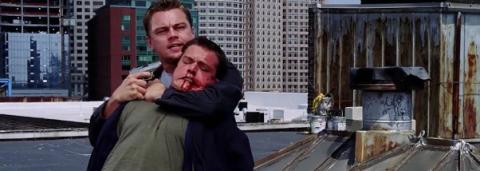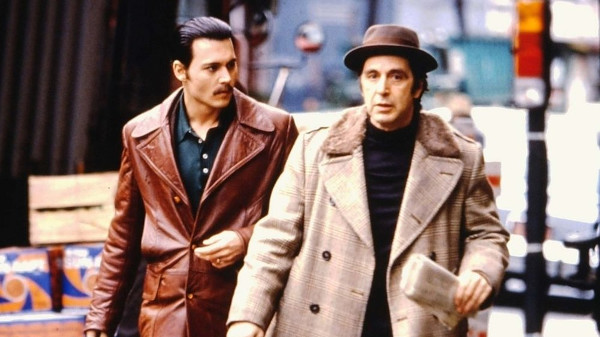Welcome to the World of Crime and Punishment

Stories of crime and punishment have often sold well to the American public. Between Dragnet, Law & Order, and much of Martin Scorsese's oeuvre, it looks like an easy judgment to make — before considering The Godfather, Heat, and many other now classic movies. Tracing the genealogy of this reality does little to undercut its effects.
While the serial murderer is often the focus of crime documentaries, podcasts, and books, a different kind of criminal exerts an equal, if not stronger, pull on the eyes and minds of the public. Although the call of this criminal may be sotto voce, particularly compared to the headlines resulting from the lurid nature of the serial killer's deeds, the danger is just as real. Since the time Herbert Asbury used his pen to become the dean of true crime writers with Gangs of New York, the danger of the gangster has been readily apparent to even the casual reader. Be whether Bill “the butcher” Poole or Monk Eastman, the gangster has long captivated a crime craving audience.
Whether it’s the popularity of true crime in Weimar Germany, as mentioned by Marcus Parks of Last Podcast on the Left in one of the episodes on Peter Kürten, or more in-depth ruminations, much has been made of the seemingly sudden surge in true crime's popularity. Be it to attempt to see once denied justice granted or in a form of wish fulfillment from masses long eager to play detective, or even, as for Jack Goldsmith in his response to The Irishman, an attempt to clear a name, crime provides the viewer with some of the most salient of emotional ethical and emotional dilemmas.

Betrayal is perhaps a key feature in the emotional landscape of true crime for the gangster. What it means to be “in” and what the gangster must do to be “in” are two inextricable questions of existential import to the members of criminal enterprises. This specific theme is on display in the cinematic telling of FBI agent Joseph Pistone's undercover infiltration of New York City's Bonanno crime family in Donnie Brasco. Although at first Pistone, played by Johnny Depp, is just some guy sitting in a diner, he quickly becomes a trusted accomplice of Benjamin “Lefty” Ruggiero, played by Al Pacino. As he is pushed deeper and deeper into the amoral famililism of the Bonannos, Pistone becomes more and more his undercover Donnie Brasco, to the point which he insists on being called Donnie by his handlers at the FBI — he also loses touch with his own family. Each scene is juxtaposed: Brasco goes deeper into the crime family, Brasco strays further from his own.
The truth of the story may be different than portrayed on screen, but as the viewer may notice, despite Lefty's dissimulating, Pistone starts to develop a fellow-feeling for him — to the point where he disobeys the orders of his boss, orders to stay in Florida, to visit Lefty in New York while Lefty's son is hospitalized due to overdosing. In the movie's final scene, Pistone is given a medal and a $500 bonus in a ceremony that is astoundingly brusque; as his wife informs him “it's over,” he stares off into the distance.
Although of an earlier vintage, the scene is reminiscent of one of the final scenes in Scorsese's Wolf of Wall Street, in which the FBI agent sits alone on a sad subway ride home. A shallow read of this type of scene describes it as a glorification of the life of the criminal: as if to say you'll find real family there, not in the hollow accolades and awards that come alongside a life of privation.

Of course, a more fictional portrayal of an undercover operation, The Departed, makes no effort to be ambivalent on the nature of membership in a criminal organization. Leonardo DiCaprio's portrayal is similar in that the undercover agent's relations become frayed, but rather than with his family, they become strained with his commanding officers: He wants out and they want him to stay in, despite the real risks he faces — “this ain't reality TV” is the correct assessment, as Frank Costello, played by Jack Nicholson, is highly dangerous. The argument over where and who is the “rat” mimics the animosity between the various Boston law enforcement agencies, which were rife with individuals who leaked investigative progress to gangsters, but is a reversal of expectations from mob movies: It's the gangsters, after all, who are supposed to be concerned.
The discussion of who is and isn't a “rat” misses out on a key factor of the amoral familism of gang life: its peril. This is underlined in Donnie Brasco by Sonny Black's crew breaking into Sonny Red's house to kill Sonny Red and his crew after Sonny Red has “sent for” Sonny Black and his crew (with the intention of killing them). Hence, the assertion that it’s facile to see the life of the criminal glorified in the movie: Just minutes before the final scenes, we see the fear of the gangsters and their mutual distrust at its ugly maximum; the operation end happens climactically on screen as Pistone is about to participate in killing another gangster — to “make his bones” — but just after a conversation in which Lefty almost catches on to Pistone being undercover.
In the real world, homicide is a real possibility. There is no human resources department in the crime world to handle insubordination or deviation from company policy, real or perceived. At the same time, the distrust plays out in more subtle ways. According to Anthony DeStefano's Gotti's Boys, a condition to John Gotti bankrolling the defense of his co-defendants, including Sammy “the Bull” Gravano, was severely limited access to the tapes on which federal prosecutors built the case against them. This sort of maneuvering gives a bit more context to Gravano's decision to cooperate with federal prosecutors than DeStefano's jacket copy referring to him as “Sammy 'the Rat' Gravano.” Throw atop Whitey Bulger's strategic use of his informant status to take competitors off the streets and game theory appears to have benefits omérta could never provide.
The gangster and his mythical code of silence may not have the same panache as the serial killer. But the fascination with the gangster, and the willful ignorance of the code of silence's myth, perhaps generates a stronger indictment of the now desiccated state of once strong familial and social bonds that used to thrive in healthy communities.

Author Bio:
Adam Gravano is a contributing writer at Highbrow Magazine.
For Highbrow Magazine































































































































































































































































































































